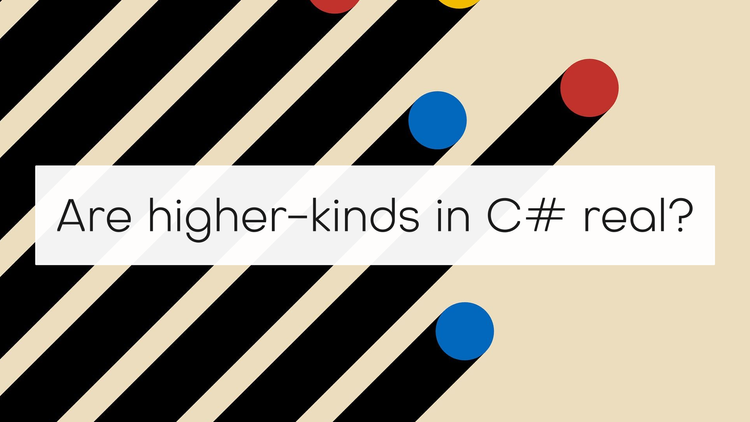Higher Kinds in C# with language-ext [Part 12- WriterT monad transformer]
The WriterT monad transformer allows for aggregating output using pure expressions.
Higher Kinds in C# with language-ext [Part 11- StateT monad transformer]
The StateT monad transformer allows for mutation of state using pure expressions. We dive into how it works.
Higher Kinds in C# with language-ext [Part 10- ReaderT monad transformer]
A look at the ReaderT monad transformer and the general Readable trait that allows generalised access to types with embedded environments.
Higher Kinds in C# with language-ext [Part 9- monad transformers]
An introduction to monad transformers and how they can be used to 'stack' monadic behaviours to create super-monads!
Higher Kinds in C# with language-ext [Part 8- monads continued]
We delve into specific 'flavours' of monad by showing how to implement many of the key monadic types in language-ext.
Are higher-kinds in C# real?
A small diversion into the social media comments made about the higher-kinds approach used in language-ext.
Higher Kinds in C# with language-ext [Part 7 - monads]
An introduction to one of the most powerful patterns in all of computer science: the monad!
Higher Kinds in C# with language-ext [Part 6 - traversables]
Traversables leverage the power of applicatives and foldables to allow for complex processing over those abstract strucutures...
Higher Kinds in C# with language-ext [Part 5 - validation]
We cover one of the most useful applicative types: Validation. It allows for the collection of multiple errors in a computation rather than just the first.
Higher Kinds in C# with language-ext [Part 4 - applicatives]
Applicatives are not often talked about outside of Haskell-land, but are extremely powerful compositional tools.
![Higher Kinds in C# with language-ext [Part 12- WriterT monad transformer]](/content/images/size/w750/2024/10/writert.png)

![Higher Kinds in C# with language-ext [Part 11- StateT monad transformer]](/content/images/size/w750/2024/08/statet.png)
![Higher Kinds in C# with language-ext [Part 10- ReaderT monad transformer]](/content/images/size/w750/2024/06/readert.png)
![Higher Kinds in C# with language-ext [Part 9- monad transformers]](/content/images/size/w750/2024/05/monad-transformers.png)
![Higher Kinds in C# with language-ext [Part 8- monads continued]](/content/images/size/w750/2024/05/monads-2.png)

![Higher Kinds in C# with language-ext [Part 7 - monads]](/content/images/size/w750/2024/05/monads-1.png)
![Higher Kinds in C# with language-ext [Part 6 - traversables]](/content/images/size/w750/2024/04/traversable.png)
![Higher Kinds in C# with language-ext [Part 5 - validation]](/content/images/size/w750/2024/05/validation-1.png)
![Higher Kinds in C# with language-ext [Part 4 - applicatives]](/content/images/size/w750/2024/05/applicatives-1.png)